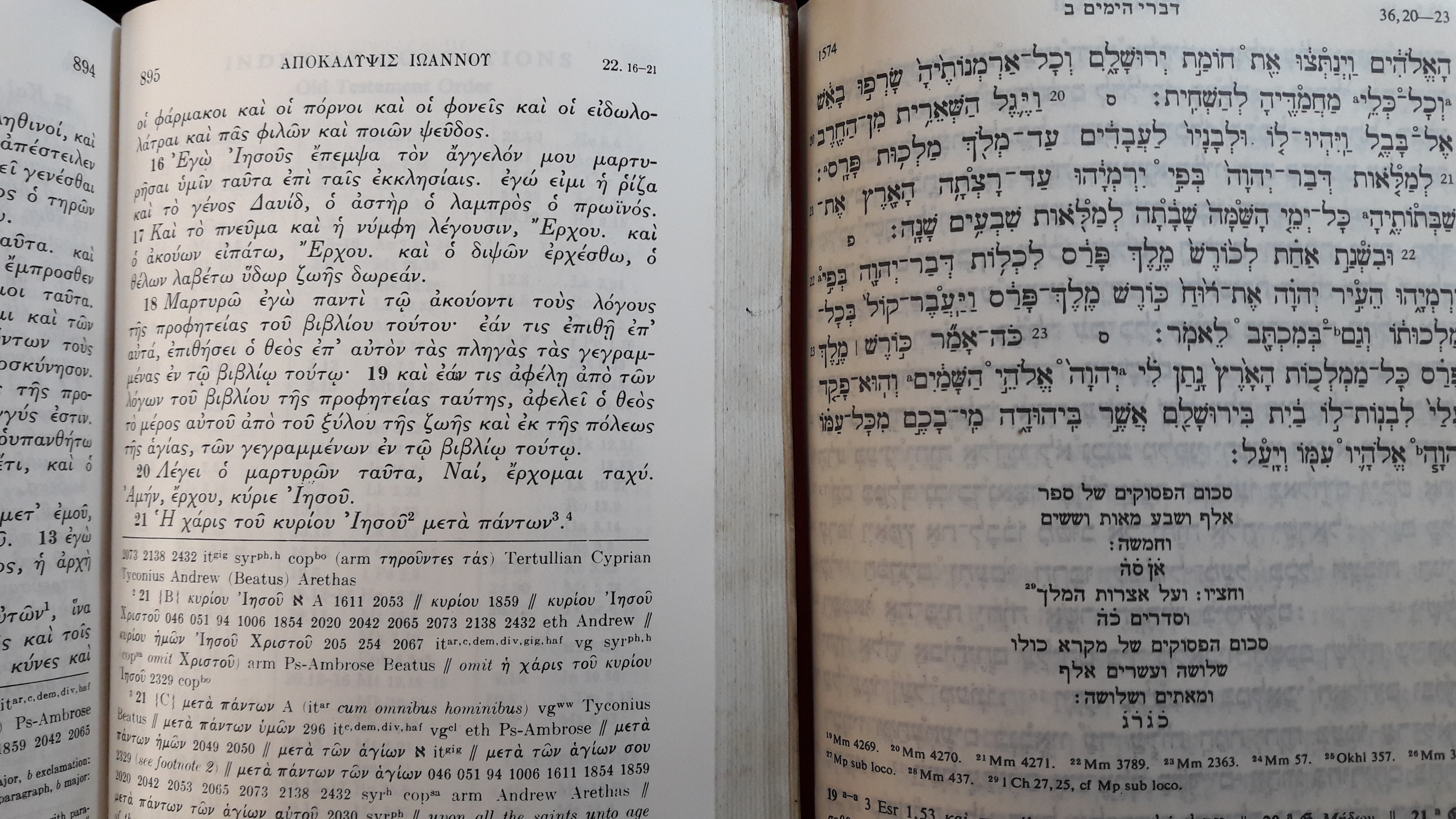Poetics
by
Aristotle
TranslatedbyS.H.Butcher
2007

Thiswebeditionpublishedby
RenderedintoHTMLby
LastupdatedWedAug2515:51:432010.
ThisworkislicensedunderaCreativeCommonsLicence
(availableat
eBooks@Adelaide
TheUniversityofAdelaideLibrary
UniversityofAdelaide
SouthAustralia5005
IPROPOSEtotreatofPoetryinitselfandofitsvariouskinds,notingtheessentialqualityofeach,toinquireintothestructureoftheplotasrequisitetoagoodpoem;intothenumberandnatureofthepartsofwhichapoemiscomposed;andsimilarlyintowhateverelsefallswithinthesameinquiry.Following,then,theorderofnature,letusbeginwiththeprincipleswhichcomefirst.
EpicpoetryandTragedy,ComedyalsoandDithyrambicpoetry,andthemusicofthefluteandofthelyreinmostoftheirforms,areallintheirgeneralconceptionmodesofimitation.Theydiffer,however,fromoneanotherinthreerespects—themedium,theobjects,themannerormodeofimitation,beingineachcasedistinct.
Forastherearepersonswho,byconsciousartormerehabit,imitateandrepresentvariousobjectsthroughthemediumofcolorandform,oragainbythevoice;sointheartsabovementioned,takenasawhole,theimitationisproducedbyrhythm,language,or‘harmony,’eithersinglyorcombined.
Thusinthemusicofthefluteandofthelyre,‘harmony’andrhythmaloneareemployed;alsoinotherarts,suchasthatoftheshepherd’spipe,whichareessentiallysimilartothese.Indancing,rhythmaloneisusedwithout‘harmony’;forevendancingimitatescharacter,emotion,andaction,byrhythmicalmovement.
Thereisanotherartwhichimitatesbymeansoflanguagealone,andthateitherinproseorverse—whichverse,again,mayeithercombinedifferentmetersorconsistofbutonekind—butthishashithertobeenwithoutaname.ForthereisnocommontermwecouldapplytothemimesofSophronandXenarchusandtheSocraticdialoguesontheonehand;and,ontheother,topoeticimitationsiniambic,elegiac,oranysimilarmeter.Peopledo,indeed,addtheword‘maker’or‘poet’tothenameofthemeter,andspeakofelegiacpoets,orepic(thatis,hexameter)poets,asifitwerenottheimitationthatmakesthepoet,buttheversethatentitlesthemalltothename.Evenwhenatreatiseonmedicineornaturalscienceisbroughtoutinverse,thenameofpoetisbycustomgiventotheauthor;andyetHomerandEmpedocleshavenothingincommonbutthemeter,sothatitwouldberighttocalltheonepoet,theotherphysicistratherthanpoet.Onthesameprinciple,evenifawriterinhispoeticimitationweretocombineallmeters,asChaeremondidinhisCentaur,whichisamedleycomposedofmetersofallkinds,weshouldbringhimtoounderthegeneraltermpoet.
Somuchthenforthesedistinctions.
Thereare,again,someartswhichemployallthemeansabovementioned—namely,rhythm,tune,andmeter.SuchareDithyrambicandNomicpoetry,andalsoTragedyandComedy;butbetweenthemoriginallythedifferenceis,thatinthefirsttwocasesthesemeansareallemployedincombination,inthelatter,nowonemeansisemployed,nowanother.
Such,then,arethedifferencesoftheartswithrespecttothemediumofimitation
Sincetheobjectsofimitationaremeninaction,andthesemenmustbeeitherofahigheroralowertype(formoralcharactermainlyanswerstothesedivisions,goodnessandbadnessbeingthedistinguishingmarksofmoraldifferences),itfollowsthatwemustrepresentmeneitherasbetterthaninreallife,orasworse,orastheyare.Itisthesameinpainting.Polygnotusdepictedmenasnoblerthantheyare,Pausonaslessnoble,Dionysiusdrewthemtruetolife.
Nowitisevidentthateachofthemodesofimitationabovementionedwillexhibitthesedifferences,andbecomeadistinctkindinimitatingobjectsthatarethusdistinct.Suchdiversitiesmaybefoundevenindancing,flute-playing,andlyre-playing.Soagaininlanguage,whetherproseorverseunaccompaniedbymusic.Homer,forexample,makesmenbetterthantheyare;Cleophonastheyare;HegemontheThasian,theinventorofparodies,andNicochares,theauthoroftheDeiliad,worsethantheyare.ThesamethingholdsgoodofDithyrambsandNomes;heretooonemayportraydifferenttypes,asTimotheusandPhiloxenusdifferedinrepresentingtheirCyclopes.ThesamedistinctionmarksoffTragedyfromComedy;forComedyaimsatrepresentingmenasworse,Tragedyasbetterthaninactuallife.
Thereisstillathirddifference—themannerinwhicheachoftheseobjectsmaybeimitated.Forthemediumbeingthesame,andtheobjectsthesame,thepoetmayimitatebynarration—inwhichcasehecaneithertakeanotherpersonalityasHomerdoes,orspeakinhisownperson,unchanged—orhemaypresentallhischaractersaslivingandmovingbeforeus.
These,then,aswesaidatthebeginning,arethethreedifferenceswhichdistinguishartisticimitation—themedium,theobjects,andthemanner.Sothatfromonepointofview,SophoclesisanimitatorofthesamekindasHomer—forbothimitatehighertypesofcharacter;fromanotherpointofview,ofthesamekindasAristophanes—forbothimitatepersonsactinganddoing.Hence,somesay,thenameof‘drama’isgiventosuchpoems,asrepresentingaction.ForthesamereasontheDoriansclaimtheinventionbothofTragedyandComedy.TheclaimtoComedyisputforwardbytheMegarians—notonlybythoseofGreeceproper,whoallegethatitoriginatedundertheirdemocracy,butalsobytheMegariansofSicily,forthepoetEpicharmus,whoismuchearlierthanChionidesandMagnes,belongedtothatcountry.TragedytooisclaimedbycertainDoriansofthePeloponnese.Ineachcasetheyappealtotheevidenceoflanguage.Theoutlyingvillages,theysay,arebythemcalledkomai,bytheAtheniansdemoi:andtheyassumethatcomediansweresonamednotfromkomazein,‘torevel,’butbecausetheywanderedfromvillagetovillage(katakomas),beingexcludedcontemptuouslyfromthecity.TheyaddalsothattheDorianwordfor‘doing’isdran,andtheAthenian,prattein.
Thismaysufficeastothenumberandnatureofthevariousmodesofimitation.
Poetryingeneralseemstohavesprungfromtwocauses,eachofthemlyingdeepinournature.First,theinstinctofimitationisimplantedinmanfromchildhood,onedifferencebetweenhimandotheranimalsbeingthatheisthemostimitativeoflivingcreatures,andthroughimitationlearnshisearliestlessons;andnolessuniversalisthepleasurefeltinthingsimitated.Wehaveevidenceofthisinthefactsofexperience.Objectswhichinthemselvesweviewwithpain,wedelighttocontemplatewhenreproducedwithminutefidelity:suchastheformsofthemostignobleanimalsandofdeadbodies.Thecauseofthisagainis,thattolearngivestheliveliestpleasure,notonlytophilosophersbuttomeningeneral;whosecapacity,however,oflearningismorelimited.Thusthereasonwhymenenjoyseeingalikenessis,thatincontemplatingittheyfindthemselveslearningorinferring,andsayingperhaps,‘Ah,thatishe.’Forifyouhappennottohaveseentheoriginal,thepleasurewillbeduenottotheimitationassuch,buttotheexecution,thecoloring,orsomesuchothercause.
Imitation,then,isoneinstinctofournature.Next,thereistheinstinctfor‘harmony’andrhythm,metersbeingmanifestlysectionsofrhythm.Persons,therefore,startingwiththisnaturalgiftdevelopedbydegreestheirspecialaptitudes,tilltheirrudeimprovisationsgavebirthtoPoetry.
Poetrynowdivergedintwodirections,accordingtotheindividualcharacterofthewriters.Thegraverspiritsimitatednobleactions,andtheactionsofgoodmen.Themoretrivialsortimitatedtheactionsofmeanerpersons,atfirstcomposingsatires,astheformerdidhymnstothegodsandthepraisesoffamousmen.ApoemofthesatiricalkindcannotindeedbeputdowntoanyauthorearlierthanHomer;thoughmanysuchwritersprobablytherewere.ButfromHomeronward,instancescanbecited—hisownMargites,forexample,andothersimilarcompositions.Theappropriatemeterwasalsohereintroduced;hencethemeasureisstillcalledtheiambicorlampooningmeasure,beingthatinwhichpeoplelampoonedoneanother.Thustheolderpoetsweredistinguishedaswritersofheroicoroflampooningverse.
As,intheseriousstyle,Homerispre-eminentamongpoets,forhealonecombineddramaticformwithexcellenceofimitationsohetoofirstlaiddownthemainlinesofcomedy,bydramatizingtheludicrousinsteadofwritingpersonalsatire.HisMargitesbearsthesamerelationtocomedythattheIliadandOdysseydototragedy.ButwhenTragedyandComedycametolight,thetwoclassesofpoetsstillfollowedtheirnaturalbent:thelampoonersbecamewritersofComedy,andtheEpicpoetsweresucceededbyTragedians,sincethedramawasalargerandhigherformofart.
WhetherTragedyhasasyetperfecteditspropertypesornot;andwhetheritistobejudgedinitself,orinrelationalsototheaudience—thisraisesanotherquestion.Bethatasitmay,Tragedy—asalsoComedy—wasatfirstmereimprovisation.TheoneoriginatedwiththeauthorsoftheDithyramb,theotherwiththoseofthephallicsongs,whicharestillinuseinmanyofourcities.Tragedyadvancedbyslowdegrees;eachnewelementthatshoweditselfwasinturndeveloped.Havingpassedthroughmanychanges,itfounditsnaturalform,andthereitstopped.
Aeschylusfirstintroducedasecondactor;hediminishedtheimportanceoftheChorus,andassignedtheleadingparttothedialogue.Sophoclesraisedthenumberofactorstothree,andaddedscene-painting.Moreover,itwasnottilllatethattheshortplotwasdiscardedforoneofgreatercompass,andthegrotesquedictionoftheearliersatyricformforthestatelymannerofTragedy.Theiambicmeasurethenreplacedthetrochaictetrameter,whichwasoriginallyemployedwhenthepoetrywasofthesatyricorder,andhadgreaterwithdancing.Oncedialoguehadcomein,Natureherselfdiscoveredtheappropriatemeasure.Fortheiambicis,ofallmeasures,themostcolloquialweseeitinthefactthatconversationalspeechrunsintoiambiclinesmorefrequentlythanintoanyotherkindofverse;rarelyintohexameters,andonlywhenwedropthecolloquialintonation.Theadditionstothenumberof‘episodes’oracts,andtheotheraccessoriesofwhichtraditiontells,mustbetakenasalreadydescribed;fortodiscussthemindetailwould,doubtless,bealargeundertaking.
Comedyis,aswehavesaid,animitationofcharactersofalowertype—not,however,inthefullsenseofthewordbad,theludicrousbeingmerelyasubdivisionoftheugly.Itconsistsinsomedefectoruglinesswhichisnotpainfulordestructive.Totakeanobviousexample,thecomicmaskisuglyanddistorted,butdoesnotimplypain.
ThesuccessivechangesthroughwhichTragedypassed,andtheauthorsofthesechanges,arewellknown,whereasComedyhashadnohistory,becauseitwasnotatfirsttreatedseriously.ItwaslatebeforetheArchongrantedacomicchorustoapoet;theperformersweretillthenvoluntary.Comedyhadalreadytakendefiniteshapewhencomicpoets,distinctivelysocalled,areheardof.Whofurnisheditwithmasks,orprologues,orincreasedthenumberofactors—theseandothersimilardetailsremainunknown.Asfortheplot,itcameoriginallyfromSicily;butofAthenianwritersCrateswasthefirstwhoabandoningthe‘iambic’orlampooningform,generalizedhisthemesandplots.
EpicpoetryagreeswithTragedyinsofarasitisanimitationinverseofcharactersofahighertype.TheydifferinthatEpicpoetryadmitsbutonekindofmeterandisnarrativeinform.Theydiffer,again,intheirlength:forTragedyendeavors,asfaraspossible,toconfineitselftoasinglerevolutionofthesun,orbutslightlytoexceedthislimit,whereastheEpicactionhasnolimitsoftime.This,then,isasecondpointofdifference;thoughatfirstthesamefreedomwasadmittedinTragedyasinEpicpoetry.
Oftheirconstituentpartssomearecommontoboth,somepeculiartoTragedy:whoever,thereforeknowswhatisgoodorbadTragedy,knowsalsoaboutEpicpoetry.AlltheelementsofanEpicpoemarefoundinTragedy,buttheelementsofaTragedyarenotallfoundintheEpicpoem.
Ofthepoetrywhichimitatesinhexameterverse,andofComedy,wewillspeakhereafter.LetusnowdiscussTragedy,resumingitsformaldefinition,asresultingfromwhathasbeenalreadysaid.
Tragedy,then,isanimitationofanactionthatisserious,complete,andofacertainmagnitude;inlanguageembellishedwitheachkindofartisticornament,theseveralkindsbeingfoundinseparatepartsoftheplay;intheformofaction,notofnarrative;throughpityandfeareffectingtheproperpurgationoftheseemotions.By‘languageembellished,’Imeanlanguageintowhichrhythm,‘harmony’andsongenter.By‘theseveralkindsinseparateparts,’Imean,thatsomepartsarerenderedthroughthemediumofversealone,othersagainwiththeaidofsong.
Nowastragicimitationimpliespersonsacting,itnecessarilyfollowsinthefirstplace,thatSpectacularequipmentwillbeapartofTragedy.Next,SongandDiction,forthesearethemediaofimitation.By‘Diction’Imeanthemeremetricalarrangementofthewords:asfor‘Song,’itisatermwhosesenseeveryoneunderstands.
Again,Tragedyistheimitationofanaction;andanactionimpliespersonalagents,whonecessarilypossesscertaindistinctivequalitiesbothofcharacterandthought;foritisbythesethatwequalifyactionsthemselves,andthese—thoughtandcharacter—arethetwonaturalcausesfromwhichactionsspring,andonactionsagainallsuccessorfailuredepends.Hence,thePlotistheimitationoftheaction—forbyplotIheremeanthearrangementoftheincidents.ByCharacterImeanthatinvirtueofwhichweascribecertainqualitiestotheagents.Thoughtisrequiredwhereverastatementisproved,or,itmaybe,ageneraltruthenunciated.EveryTragedy,therefore,musthavesixparts,whichpartsdetermineitsquality—namely,Plot,Character,Diction,Thought,Spectacle,Song.Twoofthepartsconstitutethemediumofimitation,onethemanner,andthreetheobjectsofimitation.Andthesecompletethefist.Theseelementshavebeenemployed,wemaysay,bythepoetstoaman;infact,everyplaycontainsSpectacularelementsaswellasCharacter,Plot,Diction,Song,andThought.
Butmostimportantofallisthestructureoftheincidents.ForTragedyisanimitation,notofmen,butofanactionandoflife,andlifeconsistsinaction,anditsendisamodeofaction,notaquality.Nowcharacterdeterminesmen’squalities,butitisbytheiractionsthattheyarehappyorthereverse.Dramaticaction,therefore,isnotwithaviewtotherepresentationofcharacter:charactercomesinassubsidiarytotheactions.Hencetheincidentsandtheplotaretheendofatragedy;andtheendisthechiefthingofall.Again,withoutactiontherecannotbeatragedy;theremaybewithoutcharacter.Thetragediesofmostofourmodernpoetsfailintherenderingofcharacter;andofpoetsingeneralthisisoftentrue.Itisthesameinpainting;andhereliesthedifferencebetweenZeuxisandPolygnotus.Polygnotusdelineatescharacterwell;thestyleofZeuxisisdevoidofethicalquality.Again,ifyoustringtogetherasetofspeechesexpressiveofcharacter,andwellfinishedinpointofdictionandthought,youwillnotproducetheessentialtragiceffectnearlysowellaswithaplaywhich,howeverdeficientintheserespects,yethasaplotandartisticallyconstructedincidents.Besideswhich,themostpowerfulelementsofemotionalinterestinTragedy—PeripeteiaorReversaloftheSituation,andRecognitionscenes—arepartsoftheplot.Afurtherproofis,thatnovicesintheartattaintofinishofdictionandprecisionofportraiturebeforetheycanconstructtheplot.Itisthesamewithalmostalltheearlypoets.
Theplot,then,isthefirstprinciple,and,asitwere,thesoulofatragedy;Characterholdsthesecondplace.Asimilarfactisseeninpainting.Themostbeautifulcolors,laidonconfusedly,willnotgiveasmuchpleasureasthechalkoutlineofaportrait.ThusTragedyistheimitationofanaction,andoftheagentsmainlywithaviewtotheaction.
ThirdinorderisThought—thatis,thefacultyofsayingwhatispossibleandpertinentingivencircumstances.Inthecaseoforatory,thisisthefunctionofthepoliticalartandoftheartofrhetoric:andsoindeedtheolderpoetsmaketheircharactersspeakthelanguageofciviclife;thepoetsofourtime,thelanguageoftherhetoricians.Characteristhatwhichrevealsmoralpurpose,showingwhatkindofthingsamanchoosesoravoids.Speeches,therefore,whichdonotmakethismanifest,orinwhichthespeakerdoesnotchooseoravoidanythingwhatever,arenotexpressiveofcharacter.Thought,ontheotherhand,isfoundwheresomethingisprovedtobeornottobe,orageneralmaximisenunciated.
FourthamongtheelementsenumeratedcomesDiction;bywhichImean,ashasbeenalreadysaid,theexpressionofthemeaninginwords;anditsessenceisthesamebothinverseandprose.
OftheremainingelementsSongholdsthechiefplaceamongtheembellishments
TheSpectaclehas,indeed,anemotionalattractionofitsown,but,ofalltheparts,itistheleastartistic,andconnectedleastwiththeartofpoetry.ForthepowerofTragedy,wemaybesure,isfeltevenapartfromrepresentationandactors.Besides,theproductionofspectaculareffectsdependsmoreontheartofthestagemachinistthanonthatofthepoet.
Theseprinciplesbeingestablished,letusnowdiscusstheproperstructureofthePlot,sincethisisthefirstandmostimportantthinginTragedy.
Now,accordingtoourdefinitionTragedyisanimitationofanactionthatiscomplete,andwhole,andofacertainmagnitude;fortheremaybeawholethatiswantinginmagnitude.Awholeisthatwhichhasabeginning,amiddle,andanend.Abeginningisthatwhichdoesnotitselffollowanythingbycausalnecessity,butafterwhichsomethingnaturallyisorcomestobe.Anend,onthecontrary,isthatwhichitselfnaturallyfollowssomeotherthing,eitherbynecessity,orasarule,buthasnothingfollowingit.Amiddleisthatwhichfollowssomethingassomeotherthingfollowsit.Awellconstructedplot,therefore,mustneitherbeginnorendathaphazard,butconformtotheseprinciples.
Again,abeautifulobject,whetheritbealivingorganismoranywholecomposedofparts,mustnotonlyhaveanorderlyarrangementofparts,butmustalsobeofacertainmagnitude;forbeautydependsonmagnitudeandorder.Henceaverysmallanimalorganismcannotbebeautiful;fortheviewofitisconfused,theobjectbeingseeninanalmostimperceptiblemomentoftime.Nor,again,canoneofvastsizebebeautiful;forastheeyecannottakeitallinatonce,theunityandsenseofthewholeislostforthespectator;asforinstanceiftherewereoneathousandmileslong.As,therefore,inthecaseofanimatebodiesandorganismsacertainmagnitudeisnecessary,andamagnitudewhichmaybeeasilyembracedinoneview;sointheplot,acertainlengthisnecessary,andalengthwhichcanbeeasilyembracedbythememory.Thelimitoflengthinrelationtodramaticcompetitionandsensuouspresentmentisnopartofartistictheory.Forhaditbeentheruleforahundredtragediestocompetetogether,theperformancewouldhavebeenregulatedbythewater-clock—asindeedwearetoldwasformerlydone.Butthelimitasfixedbythenatureofthedramaitselfisthis:thegreaterthelength,themorebeautifulwillthepiecebebyreasonofitssize,providedthatthewholebeperspicuous.Andtodefinethematterroughly,wemaysaythatthepropermagnitudeiscomprisedwithinsuchlimits,thatthesequenceofevents,accordingtothelawofprobabilityornecessity,willadmitofachangefrombadfortunetogood,orfromgoodfortunetobad.
Unityofplotdoesnot,assomepersonsthink,consistintheunityofthehero.Forinfinitelyvariousaretheincidentsinoneman’slifewhichcannotbereducedtounity;andso,too,therearemanyactionsofonemanoutofwhichwecannotmakeoneaction.Hencetheerror,asitappears,ofallpoetswhohavecomposedaHeracleid,aTheseid,orotherpoemsofthekind.TheyimaginethatasHeracleswasoneman,thestoryofHeraclesmustalsobeaunity.ButHomer,asinallelseheisofsurpassingmerit,heretoo—whetherfromartornaturalgenius—seemstohavehappilydiscernedthetruth.IncomposingtheOdysseyhedidnotincludealltheadventuresofOdysseus—suchashiswoundonParnassus,orhisfeignedmadnessatthemusteringofthehost—incidentsbetweenwhichtherewasnonecessaryorprobableconnection:buthemadetheOdyssey,andlikewisetheIliad,tocenterroundanactionthatinoursenseofthewordisone.Astherefore,intheotherimitativearts,theimitationisonewhentheobjectimitatedisone,sotheplot,beinganimitationofanaction,mustimitateoneactionandthatawhole,thestructuralunionofthepartsbeingsuchthat,ifanyoneofthemisdisplacedorremoved,thewholewillbedisjointedanddisturbed.Forathingwhosepresenceorabsencemakesnovisibledifference,isnotanorganicpartofthewhole.
Itis,moreover,evidentfromwhathasbeensaid,thatitisnotthefunctionofthepoettorelatewhathashappened,butwhatmayhappen—whatispossibleaccordingtothelawofprobabilityornecessity.Thepoetandthehistoriandiffernotbywritinginverseorinprose.TheworkofHerodotusmightbeputintoverse,anditwouldstillbeaspeciesofhistory,withmeternolessthanwithoutit.Thetruedifferenceisthatonerelateswhathashappened,theotherwhatmayhappen.Poetry,therefore,isamorephilosophicalandahigherthingthanhistory:forpoetrytendstoexpresstheuniversal,historytheparticular.BytheuniversalImeanhowapersonofacertaintypeonoccasionspeakoract,accordingtothelawofprobabilityornecessity;anditisthisuniversalityatwhichpoetryaimsinthenamessheattachestothepersonages.Theparticularis—forexample—whatAlcibiadesdidorsuffered.InComedythisisalreadyapparent:forherethepoetfirstconstructstheplotonthelinesofprobability,andtheninsertscharacteristicnames—unlikethelampoonerswhowriteaboutparticularindividuals.Buttragediansstillkeeptorealnames,thereasonbeingthatwhatispossibleiscredible:whathasnothappenedwedonotatoncefeelsuretobepossible;butwhathashappenedismanifestlypossible:otherwiseitwouldnothavehappened.Stillthereareevensometragediesinwhichthereareonlyoneortwowell-knownnames,therestbeingfictitious.Inothers,nonearewellknown—asinAgathon’sAntheus,whereincidentsandnamesalikearefictitious,andyettheygivenonethelesspleasure.Wemustnot,therefore,atallcostskeeptothereceivedlegends,whicharetheusualsubjectsofTragedy.Indeed,itwouldbeabsurdtoattemptit;forevensubjectsthatareknownareknownonlytoafew,andyetgivepleasuretoall.Itclearlyfollowsthatthepoetor‘maker’shouldbethemakerofplotsratherthanofverses;sinceheisapoetbecauseheimitates,andwhatheimitatesareactions.Andevenifhechancestotakeahistoricalsubject,heisnonethelessapoet;forthereisnoreasonwhysomeeventsthathaveactuallyhappenedshouldnotconformtothelawoftheprobableandpossible,andinvirtueofthatqualityinthemheistheirpoetormaker.
Ofallplotsandactionstheepisodicaretheworst.Icallaplot‘episodic’inwhichtheepisodesoractssucceedoneanotherwithoutprobableornecessarysequence.Badpoetscomposesuchpiecesbytheirownfault,goodpoets,topleasetheplayers;for,astheywriteshowpiecesforcompetition,theystretchtheplotbeyonditscapacity,andareoftenforcedtobreakthenaturalcontinuity.
Butagain,Tragedyisanimitationnotonlyofacompleteaction,butofeventsinspiringfearorpity.Suchaneffectisbestproducedwhentheeventscomeonusbysurprise;andtheeffectisheightenedwhen,atthesametime,theyfollowsascauseandeffect.Thetragicwonderwillthenbegreaterthaniftheyhappenedofthemselvesorbyaccident;forevencoincidencesaremoststrikingwhentheyhaveanairofdesign.WemayinstancethestatueofMitysatArgos,whichfelluponhismurdererwhilehewasaspectatoratafestival,andkilledhim.Sucheventsseemnottobeduetomerechance.Plots,therefore,constructedontheseprinciplesarenecessarilythebest.
PlotsareeitherSimpleorComplex,fortheactionsinreallife,ofwhichtheplotsareanimitation,obviouslyshowasimilardistinction.Anactionwhichisoneandcontinuousinthesenseabovedefined,IcallSimple,whenthechangeoffortunetakesplacewithoutReversaloftheSituationandwithoutRecognition
AComplexactionisoneinwhichthechangeisaccompaniedbysuchReversal,orbyRecognition,orbyboth.Theselastshouldarisefromtheinternalstructureoftheplot,sothatwhatfollowsshouldbethenecessaryorprobableresultoftheprecedingaction.Itmakesallthedifferencewhetheranygiveneventisacaseofpropterhocorposthoc.
ReversaloftheSituationisachangebywhichtheactionveersroundtoitsopposite,subjectalwaystoourruleofprobabilityornecessity.ThusintheOedipus,themessengercomestocheerOedipusandfreehimfromhisalarmsabouthismother,butbyrevealingwhoheis,heproducestheoppositeeffect.AgainintheLynceus,Lynceusisbeingledawaytohisdeath,andDanausgoeswithhim,meaningtoslayhim;buttheoutcomeoftheprecedingincidentsisthatDanausiskilledandLynceussaved.
Recognition,asthenameindicates,isachangefromignorancetoknowledge,producingloveorhatebetweenthepersonsdestinedbythepoetforgoodorbadfortune.ThebestformofrecognitioniscoincidentwithaReversaloftheSituation,asintheOedipus.Thereareindeedotherforms.Eveninanimatethingsofthemosttrivialkindmayinasensebeobjectsofrecognition.Again,wemayrecognizeordiscoverwhetherapersonhasdoneathingornot.Buttherecognitionwhichismostintimatelyconnectedwiththeplotandactionis,aswehavesaid,therecognitionofpersons.Thisrecognition,combinedwithReversal,willproduceeitherpityorfear;andactionsproducingtheseeffectsarethosewhich,byourdefinition,Tragedyrepresents.Moreover,itisuponsuchsituationsthattheissuesofgoodorbadfortunewilldepend.Recognition,then,beingbetweenpersons,itmayhappenthatonepersononlyisrecognizedbytheother—whenthelatterisalreadyknown—oritmaybenecessarythattherecognitionshouldbeonbothsides.ThusIphigeniaisrevealedtoOrestesbythesendingoftheletter;butanotheractofrecognitionisrequiredtomakeOrestesknowntoIphigenia.
Twoparts,then,ofthePlot—ReversaloftheSituationandRecognition—turnuponsurprises.AthirdpartistheSceneofSuffering.TheSceneofSufferingisadestructiveorpainfulaction,suchasdeathonthestage,bodilyagony,wounds,andthelike.
ThepartsofTragedywhichmustbetreatedaselementsofthewholehavebeenalreadymentioned.Wenowcometothequantitativeparts—theseparatepartsintowhichTragedyisdivided—namely,Prologue,Episode,Exode,Choricsong;thislastbeingdividedintoParodeandStasimon.Thesearecommontoallplays:peculiartosomearethesongsofactorsfromthestageandtheCommoi.
ThePrologueisthatentirepartofatragedywhichprecedestheParodeoftheChorus.TheEpisodeisthatentirepartofatragedywhichisbetweencompletechoricsongs.TheExodeisthatentirepartofatragedywhichhasnochoricsongafterit.OftheChoricparttheParodeisthefirstundividedutteranceoftheChorus:theStasimonisaChoricodewithoutanapaestsortrochaictetrameters:theCommosisajointlamentationofChorusandactors.ThepartsofTragedywhichmustbetreatedaselementsofthewholehavebeenalreadymentioned.Thequantitativeparts—theseparatepartsintowhichitisdivided—arehereenumerated.
Asthesequeltowhathasalreadybeensaid,wemustproceedtoconsiderwhatthepoetshouldaimat,andwhatheshouldavoid,inconstructinghisplots;andbywhatmeansthespecificeffectofTragedywillbeproduced.
Aperfecttragedyshould,aswehaveseen,bearrangednotonthesimplebutonthecomplexplan.Itshould,moreover,imitateactionswhichexcitepityandfear,thisbeingthedistinctivemarkoftragicimitation.Itfollowsplainly,inthefirstplace,thatthechangeoffortunepresentedmustnotbethespectacleofavirtuousmanbroughtfromprosperitytoadversity:forthismovesneitherpitynorfear;itmerelyshocksus.Nor,again,thatofabadmanpassingfromadversitytoprosperity:fornothingcanbemorealientothespiritofTragedy;itpossessesnosingletragicquality;itneithersatisfiesthemoralsensenorcallsforthpityorfear.Nor,again,shouldthedownfalloftheuttervillainbeexhibited.Aplotofthiskindwould,doubtless,satisfythemoralsense,butitwouldinspireneitherpitynorfear;forpityisarousedbyunmeritedmisfortune,fearbythemisfortuneofamanlikeourselves.Suchanevent,therefore,willbeneitherpitifulnorterrible.Thereremains,then,thecharacterbetweenthesetwoextremes—thatofamanwhoisnoteminentlygoodandjust,yetwhosemisfortuneisbroughtaboutnotbyviceordepravity,butbysomeerrororfrailty.Hemustbeonewhoishighlyrenownedandprosperous—apersonagelikeOedipus,Thyestes,orotherillustriousmenofsuchfamilies.
Awell-constructedplotshould,therefore,besingleinitsissue,ratherthandoubleassomemaintain.Thechangeoffortuneshouldbenotfrombadtogood,but,reversely,fromgoodtobad.Itshouldcomeaboutastheresultnotofvice,butofsomegreaterrororfrailty,inacharactereithersuchaswehavedescribed,orbetterratherthanworse.Thepracticeofthestagebearsoutourview.Atfirstthepoetsrecountedanylegendthatcameintheirway.Now,thebesttragediesarefoundedonthestoryofafewhouses—onthefortunesofAlcmaeon,Oedipus,Orestes,Meleager,Thyestes,Telephus,andthoseotherswhohavedoneorsufferedsomethingterrible.Atragedy,then,tobeperfectaccordingtotherulesofartshouldbeofthisconstruction.HencetheyareinerrorwhocensureEuripidesjustbecausehefollowsthisprincipleinhisplays,manyofwhichendunhappily.Itis,aswehavesaid,therightending.Thebestproofisthatonthestageandindramaticcompetition,suchplays,ifwellworkedout,arethemosttragicineffect;andEuripides,faultythoughhemaybeinthegeneralmanagementofhissubject,yetisfelttobethemosttragicofthepoets.
Inthesecondrankcomesthekindoftragedywhichsomeplacefirst.LiketheOdyssey,ithasadoublethreadofplot,andalsoanoppositecatastropheforthegoodandforthebad.Itisaccountedthebestbecauseoftheweaknessofthespectators;forthepoetisguidedinwhathewritesbythewishesofhisaudience.Thepleasure,however,thencederivedisnotthetruetragicpleasure.ItisproperrathertoComedy,wherethosewho,inthepiece,arethedeadliestenemies—likeOrestesandAegisthus—quitthestageasfriendsattheclose,andnooneslaysorisslain.
Fearandpitymaybearousedbyspectacularmeans;buttheymayalsoresultfromtheinnerstructureofthepiece,whichisthebetterway,andindicatesasuperiorpoet.Fortheplotoughttobesoconstructedthat,evenwithouttheaidoftheeye,hewhohearsthetaletoldwillthrillwithhorrorandmelttopityatwhattakesPlace.ThisistheimpressionweshouldreceivefromhearingthestoryoftheOedipus.Buttoproducethiseffectbythemerespectacleisalessartisticmethod,anddependentonextraneousaids.Thosewhoemployspectacularmeanstocreateasensenotoftheterriblebutonlyofthemonstrous,arestrangerstothepurposeofTragedy;forwemustnotdemandofTragedyanyandeverykindofpleasure,butonlythatwhichispropertoit.Andsincethepleasurewhichthepoetshouldaffordisthatwhichcomesfrompityandfearthroughimitation,itisevidentthatthisqualitymustbeimpressedupontheincidents.
Letusthendeterminewhatarethecircumstanceswhichstrikeusasterribleorpitiful.
Actionscapableofthiseffectmusthappenbetweenpersonswhoareeitherfriendsorenemiesorindifferenttooneanother.Ifanenemykillsanenemy,thereisnothingtoexcitepityeitherintheactortheintention—exceptsofarasthesufferinginitselfispitiful.Soagainwithindifferentpersons.Butwhenthetragicincidentoccursbetweenthosewhoarenearordeartooneanother—if,forexample,abrotherkills,orintendstokill,abrother,asonhisfather,amotherherson,asonhismother,oranyotherdeedofthekindisdone—thesearethesituationstobelookedforbythepoet.Hemaynotindeeddestroytheframeworkofthereceivedlegends—thefact,forinstance,thatClytemnestrawasslainbyOrestesandEriphylebyAlcmaeon—butheoughttoshowofhisown,andskilfullyhandlethetraditional.material.Letusexplainmoreclearlywhatismeantbyskilfulhandling.
Theactionmaybedoneconsciouslyandwithknowledgeofthepersons,inthemanneroftheolderpoets.ItisthustoothatEuripidesmakesMedeaslayherchildren.Or,again,thedeedofhorrormaybedone,butdoneinignorance,andthetieofkinshiporfriendshipbediscoveredafterwards.TheOedipusofSophoclesisanexample.Here,indeed,theincidentisoutsidethedramaproper;butcasesoccurwhereitfallswithintheactionoftheplay:onemaycitetheAlcmaeonofAstydamas,orTelegonusintheWoundedOdysseus.Again,thereisathirdcase—[tobeabouttoactwithknowledgeofthepersonsandthennottoact.Thefourthcase]iswhensomeoneisabouttodoanirreparabledeedthroughignorance,andmakesthediscoverybeforeitisdone.Thesearetheonlypossibleways.Forthedeedmusteitherbedoneornotdone—andthatwittinglyorunwittingly.Butofalltheseways,tobeabouttoactknowingthepersons,andthennottoact,istheworst.Itisshockingwithoutbeingtragic,fornodisasterfollowsItis,therefore,never,orveryrarely,foundinpoetry.Oneinstance,however,isintheAntigone,whereHaemonthreatenstokillCreon.Thenextandbetterwayisthatthedeedshouldbeperpetrated.Stillbetter,thatitshouldbeperpetratedinignorance,andthediscoverymadeafterwards.Thereisthennothingtoshockus,whilethediscoveryproducesastartlingeffect.Thelastcaseisthebest,aswhenintheCresphontesMeropeisabouttoslayherson,but,recognizingwhoheis,spareshislife.SointheIphigenia,thesisterrecognizesthebrotherjustintime.AgainintheHelle,thesonrecognizesthemotherwhenonthepointofgivingherup.This,then,iswhyafewfamiliesonly,ashasbeenalreadyobserved,furnishthesubjectsoftragedy.Itwasnotart,buthappychance,thatledthepoetsinsearchofsubjectstoimpressthetragicqualityupontheirplots.Theyarecompelled,therefore,tohaverecoursetothosehouseswhosehistorycontainsmovingincidentslikethese.
Enoughhasnowbeensaidconcerningthestructureoftheincidents,andtherightkindofplot.
InrespectofCharactertherearefourthingstobeaimedat.First,andmostimportant,itmustbegood.Nowanyspeechoractionthatmanifestsmoralpurposeofanykindwillbeexpressiveofcharacter:thecharacterwillbegoodifthepurposeisgood.Thisruleisrelativetoeachclass.Evenawomanmaybegood,andalsoaslave;thoughthewomanmaybesaidtobeaninferiorbeing,andtheslavequiteworthless.Thesecondthingtoaimatispropriety.Thereisatypeofmanlyvalor;butvalorinawoman,orunscrupulousclevernessisinappropriate.Thirdly,charactermustbetruetolife:forthisisadistinctthingfromgoodnessandpropriety,asheredescribed.Thefourthpointisconsistency:forthoughthesubjectoftheimitation,whosuggestedthetype,beinconsistent,stillhemustbeconsistentlyinconsistent.Asanexampleofmotivelessdegradationofcharacter,wehaveMenelausintheOrestes;ofcharacterindecorousandinappropriate,thelamentofOdysseusintheScylla,andthespeechofMelanippe;ofinconsistency,theIphigeniaatAulis—forIphigeniathesuppliantinnowayresemblesherlaterself.
Asinthestructureoftheplot,sotoointheportraitureofcharacter,thepoetshouldalwaysaimeitheratthenecessaryortheprobable.Thusapersonofagivencharactershouldspeakoractinagivenway,bytheruleeitherofnecessityorofprobability;justasthiseventshouldfollowthatbynecessaryorprobablesequence.Itisthereforeevidentthattheunravelingoftheplot,nolessthanthecomplication,mustariseoutoftheplotitself,itmustnotbebroughtaboutbytheDeusexMachina—asintheMedea,orinthereturnoftheGreeksintheIliad.TheDeusexMachinashouldbeemployedonlyforeventsexternaltothedrama—forantecedentorsubsequentevents,whichliebeyondtherangeofhumanknowledge,andwhichrequiretobereportedorforetold;fortothegodsweascribethepowerofseeingallthings.Withintheactiontheremustbenothingirrational.Iftheirrationalcannotbeexcluded,itshouldbeoutsidethescopeofthetragedy.SuchistheirrationalelementtheOedipusofSophocles.
Again,sinceTragedyisanimitationofpersonswhoareabovethecommonlevel,theexampleofgoodportraitpaintersshouldbefollowed.They,whilereproducingthedistinctiveformoftheoriginal,makealikenesswhichistruetolifeandyetmorebeautiful.Sotoothepoet,inrepresentingmenwhoareirascibleorindolent,orhaveotherdefectsofcharacter,shouldpreservethetypeandyetennobleit.InthiswayAchillesisportrayedbyAgathonandHomer.
Thesethenarerulesthepoetshouldobserve.Norshouldheneglectthoseappealstothesenses,which,thoughnotamongtheessentials,aretheconcomitantsofpoetry;forheretoothereismuchroomforerror.Butofthisenoughhasbeensaidinourpublishedtreatises.
WhatRecognitionishasbeenalreadyexplained.Wewillnowenumerateitskinds.
First,theleastartisticform,which,frompovertyofwit,ismostcommonlyemployed—recognitionbysigns.Ofthesesomearecongenital—suchas‘thespearwhichtheearth-bornracebearontheirbodies,’orthestarsintroducedbyCarcinusinhisThyestes.Othersareacquiredafterbirth;andofthesesomearebodilymarks,asscars;someexternaltokens,asnecklaces,orthelittlearkintheTyrobywhichthediscoveryiseffected.Eventheseadmitofmoreorlessskilfultreatment.ThusintherecognitionofOdysseusbyhisscar,thediscoveryismadeinonewaybythenurse,inanotherbytheswineherds.Theuseoftokensfortheexpresspurposeofproof—and,indeed,anyformalproofwithorwithouttokens—isalessartisticmodeofrecognition.Abetterkindisthatwhichcomesaboutbyaturnofincident,asintheBathSceneintheOdyssey.
Nextcometherecognitionsinventedatwillbythepoet,andonthataccountwantinginart.Forexample,OrestesintheIphigeniarevealsthefactthatheisOrestes.She,indeed,makesherselfknownbytheletter;buthe,byspeakinghimself,andsayingwhatthepoet,notwhattheplotrequires.This,therefore,isnearlyalliedtothefaultabovementioned—forOrestesmightaswellhavebroughttokenswithhim.Anothersimilarinstanceisthe‘voiceoftheshuttle’intheTereusofSophocles.
Thethirdkinddependsonmemorywhenthesightofsomeobjectawakensafeeling:asintheCypriansofDicaeogenes,wheretheherobreaksintotearsonseeingthepicture;oragainintheLayofAlcinous,whereOdysseus,hearingtheminstrelplaythelyre,recallsthepastandweeps;andhencetherecognition.
Thefourthkindisbyprocessofreasoning.ThusintheChoephori:‘Someoneresemblingmehascome:nooneresemblesmebutOrestes:thereforeOresteshascome.’SuchtooisthediscoverymadebyIphigeniaintheplayofPolyidustheSophist.ItwasanaturalreflectionforOrestestomake,‘SoItoomustdieatthealtarlikemysister.’So,again,intheTydeusofTheodectes,thefathersays,‘Icametofindmyson,andIlosemyownlife.’SotoointhePhineidae:thewomen,onseeingtheplace,inferredtheirfate—‘Herewearedoomedtodie,forherewewerecastforth.’Again,thereisacompositekindofrecognitioninvolvingfalseinferenceonthepartofoneofthecharacters,asintheOdysseusDisguisedasaMessenger.Asaid[thatnooneelsewasabletobendthebow;…henceB(thedisguisedOdysseus)imaginedthatAwould]recognizethebowwhich,infact,hehadnotseen;andtobringaboutarecognitionbythismeans—theexpectationthatAwouldrecognizethebow—isfalseinference.
But,ofallrecognitions,thebestisthatwhicharisesfromtheincidentsthemselves,wherethestartlingdiscoveryismadebynaturalmeans.SuchisthatintheOedipusofSophocles,andintheIphigenia;foritwasnaturalthatIphigeniashouldwishtodispatchaletter.Theserecognitionsalonedispensewiththeartificialaidoftokensoramulets.Nextcometherecognitionsbyprocessofreasoning.
Inconstructingtheplotandworkingitoutwiththeproperdiction,thepoetshouldplacethescene,asfaraspossible,beforehiseyes.Inthisway,seeingeverythingwiththeutmostvividness,asifhewereaspectatoroftheaction,hewilldiscoverwhatisinkeepingwithit,andbemostunlikelytooverlookinconsistencies.TheneedofsucharuleisshownbythefaultfoundinCarcinus.Amphiarauswasonhiswayfromthetemple.Thisfactescapedtheobservationofonewhodidnotseethesituation.Onthestage,however,thePiecefailed,theaudiencebeingoffendedattheoversight.
Again,thepoetshouldworkouthisplay,tothebestofhispower,withappropriategestures;forthosewhofeelemotionaremostconvincingthroughnaturalsympathywiththecharacterstheyrepresent;andonewhoisagitatedstorms,onewhoisangryrages,withthemostlifelikereality.Hencepoetryimplieseitherahappygiftofnatureorastrainofmadness.Intheonecaseamancantakethemouldofanycharacter;intheother,heisliftedoutofhisproperself.
Asforthestory,whetherthepoettakesitreadymadeorconstructsitforhimself,heshouldfirstsketchitsgeneraloutline,andthenfillintheepisodesandamplifyindetail.ThegeneralplanmaybeillustratedbytheIphigenia.Ayounggirlissacrificed;shedisappearsmysteriouslyfromtheeyesofthosewhosacrificedher;sheistransportedtoanothercountry,wherethecustomistoofferupanstrangerstothegoddess.Tothisministrysheisappointed.Sometimelaterherownbrotherchancestoarrive.Thefactthattheoracleforsomereasonorderedhimtogothere,isoutsidethegeneralplanoftheplay.Thepurpose,again,ofhiscomingisoutsidetheactionproper.However,hecomes,heisseized,and,whenonthepointofbeingsacrificed,revealswhoheis.ThemodeofrecognitionmaybeeitherthatofEuripidesorofPolyidus,inwhoseplayheexclaimsverynaturally:‘Soitwasnotmysisteronly,butItoo,whowasdoomedtobesacrificed’;andbythatremarkheissaved.
Afterthis,thenamesbeingoncegiven,itremainstofillintheepisodes.Wemustseethattheyarerelevanttotheaction.InthecaseofOrestes,forexample,thereisthemadnesswhichledtohiscapture,andhisdeliverancebymeansofthepurificatoryrite.Inthedrama,theepisodesareshort,butitisthesethatgiveextensiontoEpicpoetry.ThusthestoryoftheOdysseycanbestatedbriefly.Acertainmanisabsentfromhomeformanyyears;heisjealouslywatchedbyPoseidon,andleftdesolate.Meanwhilehishomeisinawretchedplight—suitorsarewastinghissubstanceandplottingagainsthisson.Atlength,tempest-tost,hehimselfarrives;hemakescertainpersonsacquaintedwithhim;heattacksthesuitorswithhisownhand,andishimselfpreservedwhilehedestroysthem.Thisistheessenceoftheplot;therestisepisode.
Everytragedyfallsintotwoparts—ComplicationandUnravelingorDenouement.Incidentsextraneoustotheactionarefrequentlycombinedwithaportionoftheactionproper,toformtheComplication;therestistheUnraveling.BytheComplicationImeanallthatextendsfromthebeginningoftheactiontothepartwhichmarkstheturning-pointtogoodorbadfortune.TheUnravelingisthatwhichextendsfromthebeginningofthechangetotheend.Thus,intheLynceusofTheodectes,theComplicationconsistsoftheincidentspresupposedinthedrama,theseizureofthechild,andthenagain…[theUnraveling]extendsfromtheaccusationofmurdertotheend.
TherearefourkindsofTragedy:theComplex,dependingentirelyonReversaloftheSituationandRecognition;thePathetic(wherethemotiveispassion)—suchasthetragediesonAjaxandIxion;theEthical(wherethemotivesareethical)—suchasthePhthiotidesandthePeleus.ThefourthkindistheSimple.[Wehereexcludethepurelyspectacularelement],exemplifiedbythePhorcides,thePrometheus,andsceneslaidinHades.Thepoetshouldendeavor,ifpossible,tocombineallpoeticelements;orfailingthat,thegreatestnumberandthosethemostimportant;themoreso,infaceofthecavilingcriticismoftheday.Forwhereastherehavehithertobeengoodpoets,eachinhisownbranch,thecriticsnowexpectonemantosurpassallothersintheirseverallinesofexcellence.
Inspeakingofatragedyasthesameordifferent,thebesttesttotakeistheplot.IdentityexistswheretheComplicationandUnravelingarethesame.Manypoetstietheknotwell,butunravelitBotharts,however,shouldalwaysbemastered.
Again,thepoetshouldrememberwhathasbeenoftensaid,andnotmakeanEpicstructureintoatragedy—byanEpicstructureImeanonewithamultiplicityofplots—asif,forinstance,youweretomakeatragedyoutoftheentirestoryoftheIliad.IntheEpicpoem,owingtoitslength,eachpartassumesitspropermagnitude.Inthedramatheresultisfarfromansweringtothepoet’sexpectation.TheproofisthatthepoetswhohavedramatizedthewholestoryoftheFallofTroy,insteadofselectingportions,likeEuripides;orwhohavetakenthewholetaleofNiobe,andnotapartofherstory,likeAeschylus,eitherfailutterlyormeetwithpoorsuccessonthestage.EvenAgathonhasbeenknowntofailfromthisonedefect.InhisReversalsoftheSituation,however,heshowsamarvelousskillintheefforttohitthepopulartaste—toproduceatragiceffectthatsatisfiesthemoralsense.Thiseffectisproducedwhenthecleverrogue,likeSisyphus,isoutwitted,orthebravevillaindefeated.SuchaneventisprobableinAgathon’ssenseoftheword:‘isprobable,’hesays,‘thatmanythingsshouldhappencontrarytoprobability.’
TheChorustooshouldberegardedasoneoftheactors;itshouldbeanintegralpartofthewhole,andshareintheaction,inthemannernotofEuripidesbutofSophocles.Asforthelaterpoets,theirchoralsongspertainaslittletothesubjectofthepieceastothatofanyothertragedy.Theyare,therefore,sungasmereinterludes—apracticefirstbegunbyAgathon.Yetwhatdifferenceistherebetweenintroducingsuchchoralinterludes,andtransferringaspeech,orevenawholeact,fromoneplaytoanother.
ItremainstospeakofDictionandThought,theotherpartsofTragedyhavingbeenalreadydiscussed.concerningThought,wemayassumewhatissaidintheRhetoric,towhichinquirythesubjectmorestrictlybelongs.UnderThoughtisincludedeveryeffectwhichhastobeproducedbyspeech,thesubdivisionsbeing:proofandrefutation;theexcitationofthefeelings,suchaspity,fear,anger,andthelike;thesuggestionofimportanceoritsopposite.Now,itisevidentthatthedramaticincidentsmustbetreatedfromthesamepointsofviewasthedramaticspeeches,whentheobjectistoevokethesenseofpity,fear,importance,orprobability.Theonlydifferenceisthattheincidentsshouldspeakforthemselveswithoutverbalexposition;whileeffectsaimedatinshouldbeproducedbythespeaker,andasaresultofthespeech.Forwhatwerethebusinessofaspeaker,iftheThoughtwererevealedquiteapartfromwhathesays?
Next,asregardsDiction.OnebranchoftheinquirytreatsoftheModesofUtterance.ButthisprovinceofknowledgebelongstotheartofDeliveryandtothemastersofthatscience.Itincludes,forinstance—whatisacommand,aprayer,astatement,athreat,aquestion,ananswer,andsoforth.Toknowornottoknowthesethingsinvolvesnoseriouscensureuponthepoet’sart.ForwhocanadmitthefaultimputedtoHomerbyProtagoras—thatinthewords,‘Sing,goddess,ofthewrath,hegivesacommandundertheideathatheuttersaprayer?Fortotellsomeonetodoathingornottodoitis,hesays,acommand.Wemay,therefore,passthisoverasaninquirythatbelongstoanotherart,nottopoetry.
Languageingeneralincludesthefollowingparts:Letter,Syllable,ConnectingWord,Noun,Verb,InflectionorCase,SentenceorPhrase.
ALetterisanindivisiblesound,yetnoteverysuchsound,butonlyonewhichcanformpartofagroupofsounds.Forevenbrutesutterindivisiblesounds,noneofwhichIcallaletter.ThesoundImeanmaybeeitheravowel,asemivowel,oramute.Avowelisthatwhichwithoutimpactoftongueorliphasanaudiblesound.Asemivowelthatwhichwithsuchimpacthasanaudiblesound,asSandR.Amute,thatwhichwithsuchimpacthasbyitselfnosound,butjoinedtoavowelsoundbecomesaudible,asGandD.Thesearedistinguishedaccordingtotheformassumedbythemouthandtheplacewheretheyareproduced;accordingastheyareaspiratedorsmooth,longorshort;astheyareacute,grave,orofanintermediatetone;whichinquirybelongsindetailtothewritersonmeter.
ASyllableisanonsignificantsound,composedofamuteandavowel:forGRwithoutAisasyllable,asalsowithA—GRA.Buttheinvestigationofthesedifferencesbelongsalsotometricalscience.
AConnectingWordisanonsignificantsound,whichneithercausesnorhinderstheunionofmanysoundsintoonesignificantsound;itmaybeplacedateitherendorinthemiddleofasentence.Or,anonsignificantsound,whichoutofseveralsounds,eachofthemsignificant,iscapableofformingonesignificantsound—asamphi,peri,andthelike.Or,anonsignificantsound,whichmarksthebeginning,end,ordivisionofasentence;such,however,thatitcannotcorrectlystandbyitselfatthebeginningofasentence—asmen,etoi,de.
ANounisacompositesignificantsound,notmarkingtime,ofwhichnopartisinitselfsignificant:forindoubleorcompoundwordswedonotemploytheseparatepartsasifeachwereinitselfsignificant.ThusinTheodorus,‘god-given,’thedoronor‘gift’isnotinitselfsignificant.
AVerbisacompositesignificantsound,markingtime,inwhich,asinthenoun,nopartisinitselfsignificant.For‘man’or‘white’doesnotexpresstheideaof‘when’;but‘hewalks’or‘hehaswalked’doesconnotetime,presentorpast.
Inflectionbelongsbothtothenounandverb,andexpresseseithertherelation‘of,’‘to,’orthelike;orthatofnumber,whetheroneormany,as‘man’or‘men’;orthemodesortonesinactualdelivery,e.g.,aquestionoracommand.‘Didhego?’and‘go’areverbalinflectionsofthiskind.
ASentenceorPhraseisacompositesignificantsound,someatleastofwhosepartsareinthemselvessignificant;fornoteverysuchgroupofwordsconsistsofverbsandnouns—‘thedefinitionofman,’forexample—butitmaydispenseevenwiththeverb.Stillitwillalwayshavesomesignificantpart,as‘inwalking,’or‘CleonsonofCleon.’Asentenceorphrasemayformaunityintwoways—eitherassignifyingonething,orasconsistingofseveralpartslinkedtogether.ThustheIliadisonebythelinkingtogetherofparts,thedefinitionofmanbytheunityofthethingsignified.
Wordsareoftwokinds,simpleanddouble.BysimpleImeanthosecomposedofnonsignificantelements,suchasge,‘earth.’Bydoubleorcompound,thosecomposedeitherofasignificantandnonsignificantelement(thoughwithinthewholewordnoelementissignificant),orofelementsthatarebothsignificant.Awordmaylikewisebetriple,quadruple,ormultipleinform,likesomanyMassilianexpressions,e.g.,‘Hermo-caico-xanthus[whoprayedtoFatherZeus].’
Everywordiseithercurrent,orstrange,ormetaphorical,orornamental,ornewly-coined,orlengthened,orcontracted,oraltered.
ByacurrentorproperwordImeanonewhichisingeneraluseamongapeople;byastrangeword,onewhichisinuseinanothercountry.Plainly,therefore,thesamewordmaybeatoncestrangeandcurrent,butnotinrelationtothesamepeople.Thewordsigynon,‘lance,’istotheCypriansacurrenttermbuttousastrangeone.
Metaphoristheapplicationofanaliennamebytransferenceeitherfromgenustospecies,orfromspeciestogenus,orfromspeciestospecies,orbyanalogy,thatis,proportion.Thusfromgenustospecies,as:‘Thereliesmyship’;forlyingatanchorisaspeciesoflying.Fromspeciestogenus,as:‘VerilytenthousandnobledeedshathOdysseuswrought’;fortenthousandisaspeciesoflargenumber,andishereusedforalargenumbergenerally.Fromspeciestospecies,as:‘Withbladeofbronzedrewawaythelife,’and‘Cleftthewaterwiththevesselofunyieldingbronze.’Herearusai,‘todrawaway’isusedfortamein,‘tocleave,’andtamein,againforarusai—eachbeingaspeciesoftakingaway.Analogyorproportioniswhenthesecondtermistothefirstasthefourthtothethird.Wemaythenusethefourthforthesecond,orthesecondforthefourth.Sometimestoowequalifythemetaphorbyaddingthetermtowhichtheproperwordisrelative.ThusthecupistoDionysusastheshieldtoAres.Thecupmay,therefore,becalled‘theshieldofDionysus,’andtheshield‘thecupofAres.’Or,again,asoldageistolife,soiseveningtoday.Eveningmaythereforebecalled,‘theoldageoftheday,’andoldage,‘theeveningoflife,’or,inthephraseofEmpedocles,‘life’ssettingsun.’Forsomeofthetermsoftheproportionthereisattimesnowordinexistence;stillthemetaphormaybeused.Forinstance,toscatterseediscalledsowing:buttheactionofthesuninscatteringhisraysisnameless.Stillthisprocessbearstothesunthesamerelationassowingtotheseed.Hencetheexpressionofthepoet‘sowingthegod-createdlight.’Thereisanotherwayinwhichthiskindofmetaphormaybeemployed.Wemayapplyanalienterm,andthendenyofthattermoneofitsproperattributes;asifweweretocalltheshield,not‘thecupofAres,’but‘thewinelesscup’.
Anewly-coinedwordisonewhichhasneverbeeneveninlocaluse,butisadoptedbythepoethimself.Somesuchwordsthereappeartobe:asernyges,‘sprouters,’forkerata,‘horns’;andareter,‘supplicator’,forhiereus,‘priest.’
Awordislengthenedwhenitsownvowelisexchangedforalongerone,orwhenasyllableisinserted.Awordiscontractedwhensomepartofitisremoved.Instancesoflengtheningare:poleosforpoleos,PeleiadeoforPeleidou;ofcontraction:kri,do,andops,asinmiaginetaiamphoteronops,‘theappearanceofbothisone.’
Analteredwordisoneinwhichpartoftheordinaryformisleftunchanged,andpartisrecast:asindexiteronkatamazon,‘ontherightbreast,’dexiteronisfordexion.
Nounsinthemselvesareeithermasculine,feminine,orneuter.MasculinearesuchasendinN,R,S,orinsomelettercompoundedwithS—thesebeingtwo,PSandX.Feminine,suchasendinvowelsthatarealwayslong,namelyEandO,and—ofvowelsthatadmitoflengthening—thoseinA.Thusthenumberoflettersinwhichnounsmasculineandfeminineendisthesame;forPSandXareequivalenttoendingsinS.Nonounendsinamuteoravowelshortbynature.ThreeonlyendinI—meli,‘honey’;kommi,‘gum’;peperi,‘pepper’;fiveendinU.Neuternounsendinthesetwolattervowels;alsoinNandS.
Theperfectionofstyleistobeclearwithoutbeingmean.Thecleareststyleisthatwhichusesonlycurrentorproperwords;atthesametimeitismean—witnessthepoetryofCleophonandofSthenelus.Thatdiction,ontheotherhand,isloftyandraisedabovethecommonplacewhichemploysunusualwords.Byunusual,Imeanstrange(orrare)words,metaphorical,lengthened—anything,inshort,thatdiffersfromthenormalidiom.Yetastylewhollycomposedofsuchwordsiseitherariddleorajargon;ariddle,ifitconsistsofmetaphors;ajargon,ifitconsistsofstrange(orrare)words.Fortheessenceofariddleistoexpresstruefactsunderimpossiblecombinations.Nowthiscannotbedonebyanyarrangementofordinarywords,butbytheuseofmetaphoritcan.Suchistheriddle:‘AmanIsawwhoonanothermanhadgluedthebronzebyaidoffire,’andothersofthesamekind.Adictionthatismadeupofstrange(orrare)termsisajargon.Acertaininfusion,therefore,oftheseelementsisnecessarytostyle;forthestrange(orrare)word,themetaphorical,theornamental,andtheotherkindsabovementioned,willraiseitabovethecommonplaceandmean,whiletheuseofproperwordswillmakeitperspicuous.Butnothingcontributesmoretoproduceacleannessofdictionthatisremotefromcommonnessthanthelengthening,contraction,andalterationofwords.Forbydeviatinginexceptionalcasesfromthenormalidiom,thelanguagewillgaindistinction;while,atthesametime,thepartialconformitywithusagewillgiveperspicuity.Thecritics,therefore,areinerrorwhocensuretheselicensesofspeech,andholdtheauthoruptoridicule.ThusEucleides,theelder,declaredthatitwouldbeaneasymattertobeapoetifyoumightlengthensyllablesatwill.Hecaricaturedthepracticeintheveryformofhisdiction,asintheverse:
EpichareneidonMarathonadebadizonta,
IsawEpichareswalkingtoMarathon,
or, oukang’eramenostonekeinouelleboron. Toemploysuchlicenseatallobtrusivelyis,nodoubt,grotesque;butinanymodeofpoeticdictiontheremustbemoderation.Evenmetaphors,strange(orrare)words,oranysimilarformsofspeech,wouldproducethelikeeffectifusedwithoutproprietyandwiththeexpresspurposeofbeingludicrous.Howgreatadifferenceismadebytheappropriateuseoflengthening,maybeseeninEpicpoetrybytheinsertionofordinaryformsintheverse.So,again,ifwetakeastrange(orrare)word,ametaphor,oranysimilarmodeofexpression,andreplaceitbythecurrentorproperterm,thetruthofourobservationwillbemanifest.Forexample,AeschylusandEuripideseachcomposedthesameiambicline.ButthealterationofasinglewordbyEuripides,whoemployedtherarerterminsteadoftheordinaryone,makesoneverseappearbeautifulandtheothertrivial.AeschylusinhisPhiloctetessays: phagedainad’hemousarkasesthieipodos. Euripidessubstitutesthoinatai,‘feastson,’foresthiei,‘feedson.’Again,intheline, nundem’eonoligostekaioutidanoskaiaeikes, thedifferencewillbefeltifwesubstitutethecommonwords, nundem’eonmikrostekaiasthenikoskaiaeides. Or,iffortheline, diphronaeikelionkatatheisoligentetrapezan, weread, diphronmochtheronkatatheismikrantetrapezan. Or,foreionesbooosin,‘theseashoresroar,’eioneskrazousin,‘theseashoresscreech.’ Again,Ariphradesridiculedthetragediansforusingphraseswhichnoonewouldemployinordinaryspeech:forexample,domatonapo,‘fromthehouseaway,’insteadofapodomaton,‘awayfromthehouse;’sethen,egodenin,‘tothee,andItohim;’Achilleosperi,‘Achillesabout,’insteadofperiAchilleos,‘aboutAchilles;’andthelike.Itispreciselybecausesuchphrasesarenotpartofthecurrentidiomthattheygivedistinctiontothestyle.This,however,hefailedtosee. Itisagreatmattertoobserveproprietyintheseseveralmodesofexpression,asalsoincompoundwords,strange(orrare)words,andsoforth.Butthegreatestthingbyfaristohaveacommandofmetaphor.Thisalonecannotbeimpartedbyanother;itisthemarkofgenius,fortomakegoodmetaphorsimpliesaneyeforresemblances. Ofthevariouskindsofwords,thecompoundarebestadaptedtodithyrambs,rarewordstoheroicpoetry,metaphorstoiambic.Inheroicpoetry,indeed,allthesevarietiesareserviceable.Butiniambicverse,whichreproduces,asfarasmaybe,familiarspeech,themostappropriatewordsarethosewhicharefoundeveninprose.Thesearethecurrentorproper,themetaphorical,theornamental. ConcerningTragedyandimitationbymeansofactionthismaysuffice. Astothatpoeticimitationwhichisnarrativeinformandemploysasinglemeter,theplotmanifestlyought,asinatragedy,tobeconstructedondramaticprinciples.Itshouldhaveforitssubjectasingleaction,wholeandcomplete,withabeginning,amiddle,andanend.Itwillthusresemblealivingorganisminallitsunity,andproducethepleasurepropertoit.Itwilldifferinstructurefromhistoricalcompositions,whichofnecessitypresentnotasingleaction,butasingleperiod,andallthathappenedwithinthatperiodtoonepersonortomany,littleconnectedtogetherastheeventsmaybe.Forasthesea-fightatSalamisandthebattlewiththeCarthaginiansinSicilytookplaceatthesametime,butdidnottendtoanyoneresult,sointhesequenceofevents,onethingsometimesfollowsanother,andyetnosingleresultistherebyproduced.Suchisthepractice,wemaysay,ofmostpoets.Hereagain,then,ashasbeenalreadyobserved,thetranscendentexcellenceofHomerismanifest.HeneverattemptstomakethewholewarofTroythesubjectofhispoem,thoughthatwarhadabeginningandanend.Itwouldhavebeentoovastatheme,andnoteasilyembracedinasingleview.If,again,hehadkeptitwithinmoderatelimits,itmusthavebeenover-complicatedbythevarietyoftheincidents.Asitis,hedetachesasingleportion,andadmitsasepisodesmanyeventsfromthegeneralstoryofthewar—suchastheCatalogueoftheshipsandothers—thusdiversifyingthepoem.Allotherpoetstakeasinglehero,asingleperiod,oranactionsingleindeed,butwithamultiplicityofparts.ThusdidtheauthoroftheCypriaandoftheLittleIliad.ForthisreasontheIliadandtheOdysseyeachfurnishthesubjectofonetragedy,or,atmost,oftwo;whiletheCypriasuppliesmaterialsformany,andtheLittleIliadforeight—theAwardoftheArms,thePhiloctetes,theNeoptolemus,theEurypylus,theMendicantOdysseus,theLaconianWomen,theFallofIlium,theDepartureoftheFleet. Again,EpicpoetrymusthaveasmanykindsasTragedy:itmustbesimple,orcomplex,or‘ethical,’or‘pathetic.’Thepartsalso,withtheexceptionofsongandspectacle,arethesame;foritrequiresReversalsoftheSituation,Recognitions,andScenesofSuffering.Moreover,thethoughtsandthedictionmustbeartistic.InalltheserespectsHomerisourearliestandsufficientmodel.Indeedeachofhispoemshasatwofoldcharacter.TheIliadisatoncesimpleand‘pathetic,’andtheOdysseycomplex(forRecognitionscenesrunthroughit),andatthesametime‘ethical.’Moreover,indictionandthoughttheyaresupreme. EpicpoetrydiffersfromTragedyinthescaleonwhichitisconstructed,andinitsmeter.Asregardsscaleorlength,wehavealreadylaiddownanadequatelimit:thebeginningandtheendmustbecapableofbeingbroughtwithinasingleview.Thisconditionwillbesatisfiedbypoemsonasmallerscalethantheoldepics,andansweringinlengthtothegroupoftragediespresentedatasinglesitting. Epicpoetryhas,however,agreat—aspecial—capacityforenlargingitsdimensions,andwecanseethereason.InTragedywecannotimitateseverallinesofactionscarriedonatoneandthesametime;wemustconfineourselvestotheactiononthestageandtheparttakenbytheplayers.ButinEpicpoetry,owingtothenarrativeform,manyeventssimultaneouslytransactedcanbepresented;andthese,ifrelevanttothesubject,addmassanddignitytothepoem.TheEpichashereanadvantage,andonethatconducestograndeurofeffect,todivertingthemindofthehearer,andrelievingthestorywithvaryingepisodes.Forsamenessofincidentsoonproducessatiety,andmakestragediesfailonthestage. Asforthemeter,theheroicmeasurehasproveditsfitnessbyhexametertestofexperience.Ifanarrativepoeminanyothermeterorinmanymeterswerenowcomposed,itwouldbefoundincongruous.Forofallmeasurestheheroicisthestateliestandthemostmassive;andhenceitmostreadilyadmitsrarewordsandmetaphors,whichisanotherpointinwhichthenarrativeformofimitationstandsalone.Ontheotherhand,theiambicandthetrochaictetrameterarestirringmeasures,thelatterbeingakintodancing,theformerexpressiveofaction.Stillmoreabsurdwoulditbetomixtogetherdifferentmeters,aswasdonebyChaeremon.Hencenoonehasevercomposedapoemonagreatscaleinanyotherthanheroicverse.Natureherself,aswehavesaid,teachesthechoiceofthepropermeasure. Homer,admirableinallrespects,hasthespecialmeritofbeingtheonlypoetwhorightlyappreciatesthepartheshouldtakehimself.Thepoetshouldspeakaslittleaspossibleinhisownperson,foritisnotthisthatmakeshimanimitator.Otherpoetsappearthemselvesuponthescenethroughout,andimitatebutlittleandrarely.Homer,afterafewprefatorywords,atoncebringsinaman,orwoman,orotherpersonage;noneofthemwantingincharacteristicqualities,buteachwithacharacterofhisown. TheelementofthewonderfulisrequiredinTragedy.Theirrational,onwhichthewonderfuldependsforitschiefeffects,haswiderscopeinEpicpoetry,becausetherethepersonactingisnotseen.Thus,thepursuitofHectorwouldbeludicrousifplaceduponthestage—theGreeksstandingstillandnotjoininginthepursuit,andAchilleswavingthemback.ButintheEpicpoemtheabsurditypassesunnoticed.Nowthewonderfulispleasing,asmaybeinferredfromthefactthateveryonetellsastorywithsomeadditionofhisknowingthathishearerslikeit.ItisHomerwhohaschieflytaughtotherpoetstheartoftellingliesskilfully.ThesecretofitliesinafallacyFor,assumingthatifonethingisorbecomes,asecondisorbecomes,menimaginethat,ifthesecondis,thefirstlikewiseisorbecomes.Butthisisafalseinference.Hence,wherethefirstthingisuntrue,itisquiteunnecessary,providedthesecondbetrue,toaddthatthefirstisorhasbecome.Forthemind,knowingthesecondtobetrue,falselyinfersthetruthofthefirst.ThereisanexampleofthisintheBathSceneoftheOdyssey. Accordingly,thepoetshouldpreferprobableimpossibilitiestoimprobablepossibilities.Thetragicplotmustnotbecomposedofirrationalparts.Everythingirrationalshould,ifpossible,beexcluded;or,atallevents,itshouldlieoutsidetheactionoftheplay(as,intheOedipus,thehero’signoranceastothemannerofLaius’death);notwithinthedrama—asintheElectra,themessenger’saccountofthePythiangames;or,asintheMysians,themanwhohascomefromTegeatoMysiaandisstillspeechless.Thepleathatotherwisetheplotwouldhavebeenruined,isridiculous;suchaplotshouldnotinthefirstinstancebeconstructed.Butoncetheirrationalhasbeenintroducedandanairoflikelihoodimpartedtoit,wemustacceptitinspiteoftheabsurdity.TakeeventheirrationalincidentsintheOdyssey,whereOdysseusisleftupontheshoreofIthaca.Howintolerableeventhesemighthavebeenwouldbeapparentifaninferiorpoetweretotreatthesubject.Asitis,theabsurdityisveiledbythepoeticcharmwithwhichthepoetinvestsit. Thedictionshouldbeelaboratedinthepausesoftheaction,wherethereisnoexpressionofcharacterorthought.For,conversely,characterandthoughtaremerelyobscuredbyadictionthatisover-brilliant Withrespecttocriticaldifficultiesandtheirsolutions,thenumberandnatureofthesourcesfromwhichtheymaybedrawnmaybethusexhibited. Thepoetbeinganimitator,likeapainteroranyotherartist,mustofnecessityimitateoneofthreeobjects—thingsastheywereorare,thingsastheyaresaidorthoughttobe,orthingsastheyoughttobe.Thevehicleofexpressionislanguage—eithercurrenttermsor,itmaybe,rarewordsormetaphors.Therearealsomanymodificationsoflanguage,whichweconcedetothepoets.Addtothis,thatthestandardofcorrectnessisnotthesameinpoetryandpolitics,anymorethaninpoetryandanyotherart.Withintheartofpoetryitselftherearetwokindsoffaults—thosewhichtouchitsessence,andthosewhichareaccidental.Ifapoethaschosentoimitatesomething,[buthasimitateditincorrectly]throughwantofcapacity,theerrorisinherentinthepoetry.Butifthefailureisduetoawrongchoice—ifhehasrepresentedahorseasthrowingoutbothhisofflegsatonce,orintroducedtechnicalinaccuraciesinmedicine,forexample,orinanyotherart—theerrorisnotessentialtothepoetry.Thesearethepointsofviewfromwhichweshouldconsiderandanswertheobjectionsraisedbythecritics. Firstastomatterswhichconcernthepoet’sownart.Ifhedescribestheimpossible,heisguiltyofanerror;buttheerrormaybejustified,iftheendoftheartbetherebyattained(theendbeingthatalreadymentioned)—if,thatis,theeffectofthisoranyotherpartofthepoemisthusrenderedmorestriking.AcaseinpointisthepursuitofHector.if,however,theendmighthavebeenaswell,orbetter,attainedwithoutviolatingthespecialrulesofthepoeticart,theerrorisnotjustified:foreverykindoferrorshould,ifpossible,beavoided. Again,doestheerrortouchtheessentialsofthepoeticart,orsomeaccidentofit?Forexample,nottoknowthatahindhasnohornsisalessseriousmatterthantopaintitinartistically. Further,ifitbeobjectedthatthedescriptionisnottruetofact,thepoetmayperhapsreply,‘Buttheobjectsareastheyoughttobe’;justasSophoclessaidthathedrewmenastheyoughttobe;Euripides,astheyare.Inthiswaytheobjectionmaybemet.If,however,therepresentationbeofneitherkind,thepoetmayanswer,‘Thisishowmensaythethingis.’appliestotalesaboutthegods.Itmaywellbethatthesestoriesarenothigherthanfactnoryettruetofact:theyare,verypossibly,whatXenophanessaysofthem.Butanyhow,‘thisiswhatissaid.’Again,adescriptionmaybenobetterthanthefact:‘Still,itwasthefact’;asinthepassageaboutthearms:‘Uprightupontheirbutt-endsstoodthespears.’Thiswasthecustomthen,asitnowisamongtheIllyrians. Again,inexaminingwhetherwhathasbeensaidordonebysomeoneispoeticallyrightornot,wemustnotlookmerelytotheparticularactorsaying,andaskwhetheritispoeticallygoodorbad.Wemustalsoconsiderbywhomitissaidordone,towhom,when,bywhatmeans,orforwhatend;whether,forinstance,itbetosecureagreatergood,oravertagreaterevil. Otherdifficultiesmayberesolvedbydueregardtotheusageoflanguage.Wemaynotearareword,asinoureasmenproton,‘themulesfirst[hekilled],’wherethepoetperhapsemploysoureasnotinthesenseofmules,butofsentinels.So,again,ofDolon:‘ill-favoredindeedhewastolookupon.’Itisnotmeantthathisbodywasill-shapedbutthathisfacewasugly;fortheCretansusethewordeueides,‘well-flavored’todenoteafairface.Again,zoroterondekeraie,‘mixthedrinklivelier’doesnotmean‘mixitstronger’asforharddrinkers,but‘mixitquicker.’ Sometimesanexpressionismetaphorical,as‘Nowallgodsandmenweresleepingthroughthenight,’whileatthesametimethepoetsays:‘OftenindeedasheturnedhisgazetotheTrojanplain,hemarveledatthesoundofflutesandpipes.’‘All’ishereusedmetaphoricallyfor‘many,’allbeingaspeciesofmany.Sointheverse,‘aloneshehathnopart…,oie,‘alone’ismetaphorical;forthebestknownmaybecalledtheonlyone. Again,thesolutionmaydependuponaccentorbreathing.ThusHippiasofThasossolvedthedifficultiesinthelines,didomen(didomen)dehoi,andtomenhou(ou)kataputhetaiombro. Oragain,thequestionmaybesolvedbypunctuation,asinEmpedocles:‘Ofasuddenthingsbecamemortalthatbeforehadlearnttobeimmortal,andthingsunmixedbeforemixed.’ Oragain,byambiguityofmeaning,asparochekendepleonux,wherethewordpleoisambiguous. Orbytheusageoflanguage.Thusanymixeddrinkiscalledoinos,‘wine’.HenceGanymedeissaid‘topourthewinetoZeus,’thoughthegodsdonotdrinkwine.Sotooworkersinironarecalledchalkeas,or‘workersinbronze.’This,however,mayalsobetakenasametaphor. Again,whenawordseemstoinvolvesomeinconsistencyofmeaning,weshouldconsiderhowmanysensesitmaybearintheparticularpassage.Forexample:‘therewasstayedthespearofbronze’—weshouldaskinhowmanywayswemaytake‘beingcheckedthere.’ThetruemodeofinterpretationisthepreciseoppositeofwhatGlauconmentions.Critics,hesays,jumpatcertaingroundlessconclusions;theypassadversejudgementandthenproceedtoreasononit;and,assumingthatthepoethassaidwhatevertheyhappentothink,findfaultifathingisinconsistentwiththeirownfancy. ThequestionaboutIcariushasbeentreatedinthisfashion.ThecriticsimaginehewasaLacedaemonian.Theythinkitstrange,therefore,thatTelemachusshouldnothavemethimwhenhewenttoLacedaemon.ButtheCephallenianstorymayperhapsbethetrueone.TheyallegethatOdysseustookawifefromamongthemselves,andthatherfatherwasIcadius,notIcarius.Itismerelyamistake,then,thatgivesplausibilitytotheobjection. Ingeneral,theimpossiblemustbejustifiedbyreferencetoartisticrequirements,ortothehigherreality,ortoreceivedopinion.Withrespecttotherequirementsofart,aprobableimpossibilityistobepreferredtoathingimprobableandyetpossible.Again,itmaybeimpossiblethatthereshouldbemensuchasZeuxispainted.‘Yes,’wesay,‘buttheimpossibleisthehigherthing;fortheidealtypemustsurpasstherealty.’Tojustifytheirrational,weappealtowhatiscommonlysaidtobe.Inadditiontowhich,weurgethattheirrationalsometimesdoesnotviolatereason;justas‘itisprobablethatathingmayhappencontrarytoprobability.’ Thingsthatsoundcontradictoryshouldbeexaminedbythesamerulesasindialecticalrefutation—whetherthesamethingismeant,inthesamerelation,andinthesamesense.Weshouldthereforesolvethequestionbyreferencetowhatthepoetsayshimself,ortowhatistacitlyassumedbyapersonofintelligence. Theelementoftheirrational,and,similarly,depravityofcharacter,arejustlycensuredwhenthereisnoinnernecessityforintroducingthem.SuchistheirrationalelementintheintroductionofAegeusbyEuripidesandthebadnessofMenelausintheOrestes. Thus,therearefivesourcesfromwhichcriticalobjectionsaredrawn.Thingsarecensuredeitherasimpossible,orirrational,ormorallyhurtful,orcontradictory,orcontrarytoartisticcorrectness.Theanswersshouldbesoughtunderthetwelveheadsabovementioned. ThequestionmayberaisedwhethertheEpicorTragicmodeofimitationisthehigher.Ifthemorerefinedartisthehigher,andthemorerefinedineverycaseisthatwhichappealstothebettersortofaudience,theartwhichimitatesanythingandeverythingismanifestlymostunrefined.Theaudienceissupposedtobetoodulltocomprehendunlesssomethingoftheirownisthrownbytheperformers,whothereforeindulgeinrestlessmovements.Badflute-playerstwistandtwirl,iftheyhavetorepresent‘thequoit-throw,’orhustlethecoryphaeuswhentheyperformtheScylla.Tragedy,itissaid,hasthissamedefect.Wemaycomparetheopinionthattheolderactorsentertainedoftheirsuccessors.MynniscususedtocallCallippides‘ape’onaccountoftheextravaganceofhisaction,andthesameviewwasheldofPindarus.Tragicart,then,asawhole,standstoEpicinthesamerelationastheyoungertotheelderactors.SowearetoldthatEpicpoetryisaddressedtoacultivatedaudience,whodonotneedgesture;Tragedy,toaninferiorpublic.Beingthenunrefined,itisevidentlythelowerofthetwo. Now,inthefirstplace,thiscensureattachesnottothepoeticbuttothehistrionicart;forgesticulationmaybeequallyoverdoneinepicrecitation,asbySosistratus,orinlyricalcompetition,asbyMnasitheustheOpuntian.Next,allactionisnottobecondemned—anymorethanalldancing—butonlythatofbadperformers.SuchwasthefaultfoundinCallippides,asalsoinothersofourownday,whoarecensuredforrepresentingdegradedwomen.Again,TragedylikeEpicpoetryproducesitseffectevenwithoutaction;itrevealsitspowerbymerereading.If,then,inallotherrespectsitissuperior,thisfault,wesay,isnotinherentinit. Andsuperioritis,becauseithasantheepicelements—itmayevenusetheepicmeter—withthemusicandspectaculareffectsasimportantaccessories;andtheseproducethemostvividofpleasures.Further,ithasvividnessofimpressioninreadingaswellasinrepresentation.Moreover,theartattainsitsendwithinnarrowerlimitsfortheconcentratedeffectismorepleasurablethanonewhichisspreadoveralongtimeandsodiluted.What,forexample,wouldbetheeffectoftheOedipusofSophocles,ifitwerecastintoaformaslongastheIliad?Oncemore,theEpicimitationhaslessunity;asisshownbythis,thatanyEpicpoemwillfurnishsubjectsforseveraltragedies.Thusifthestoryadoptedbythepoethasastrictunity,itmusteitherbeconciselytoldandappeartruncated;or,ifitconformstotheEpiccanonoflength,itmustseemweakandwatery.[Suchlengthimpliessomelossofunity,]if,Imean,thepoemisconstructedoutofseveralactions,liketheIliadandtheOdyssey,whichhavemanysuchparts,eachwithacertainmagnitudeofitsown.Yetthesepoemsareasperfectaspossibleinstructure;eachis,inthehighestdegreeattainable,animitationofasingleaction. If,then,tragedyissuperiortoepicpoetryinalltheserespects,and,moreover,fulfillsitsspecificfunctionbetterasanart—foreachartoughttoproduce,notanychancepleasure,butthepleasurepropertoit,asalreadystated—itplainlyfollowsthattragedyisthehigherart,asattainingitsendmoreperfectly. ThusmuchmaysufficeconcerningTragicandEpicpoetryingeneral;theirseveralkindsandparts,withthenumberofeachandtheirdifferences;thecausesthatmakeapoemgoodorbad;theobjectionsofthecriticsandtheanswerstotheseobjections…. Thiswebeditionpublishedby: eBooks@Adelaide
Notifyoudesirehishellebore.
Thetumorwhichiseatingthefleshofmyfoot.
Yetasmallman,worthlessandunseemly,
Yetalittlefellow,weakandugly.
Settinganunseemlycouchandameagertable,
Settingawretchedcouchandapunytable.XXIII
XXIV
XXV
XXVI
TheUniversityofAdelaideLibrary
UniversityofAdelaide
SouthAustralia5005